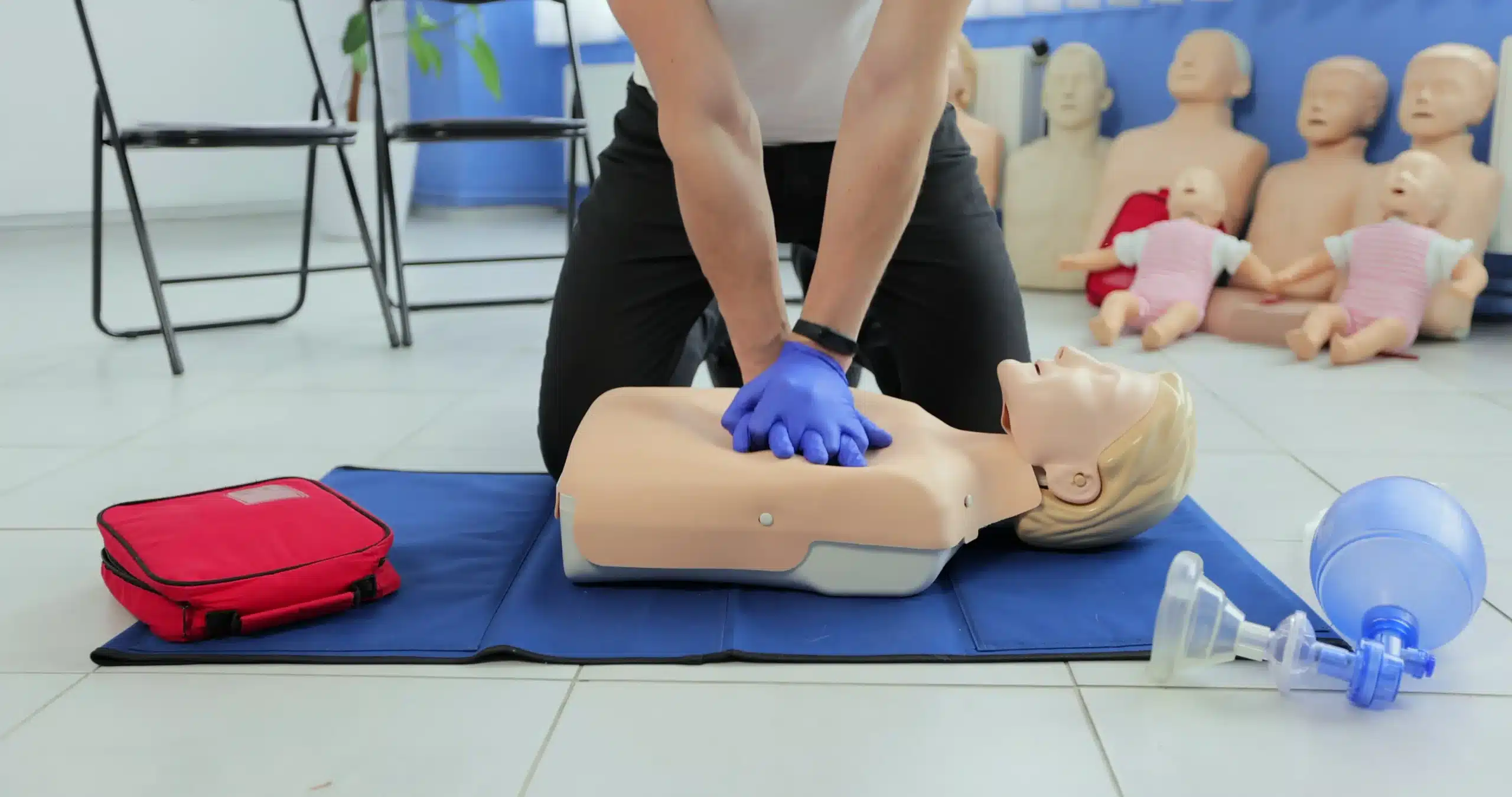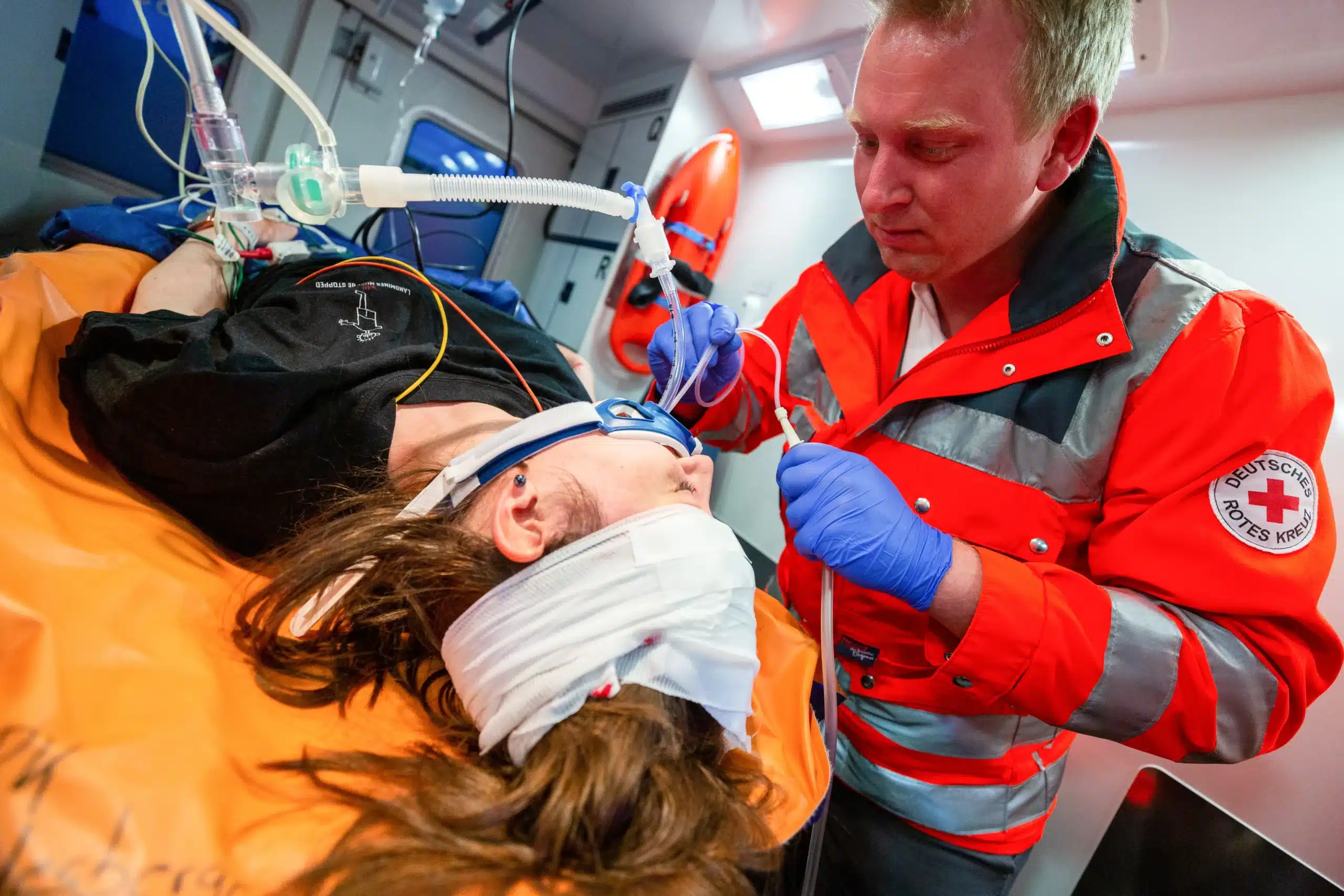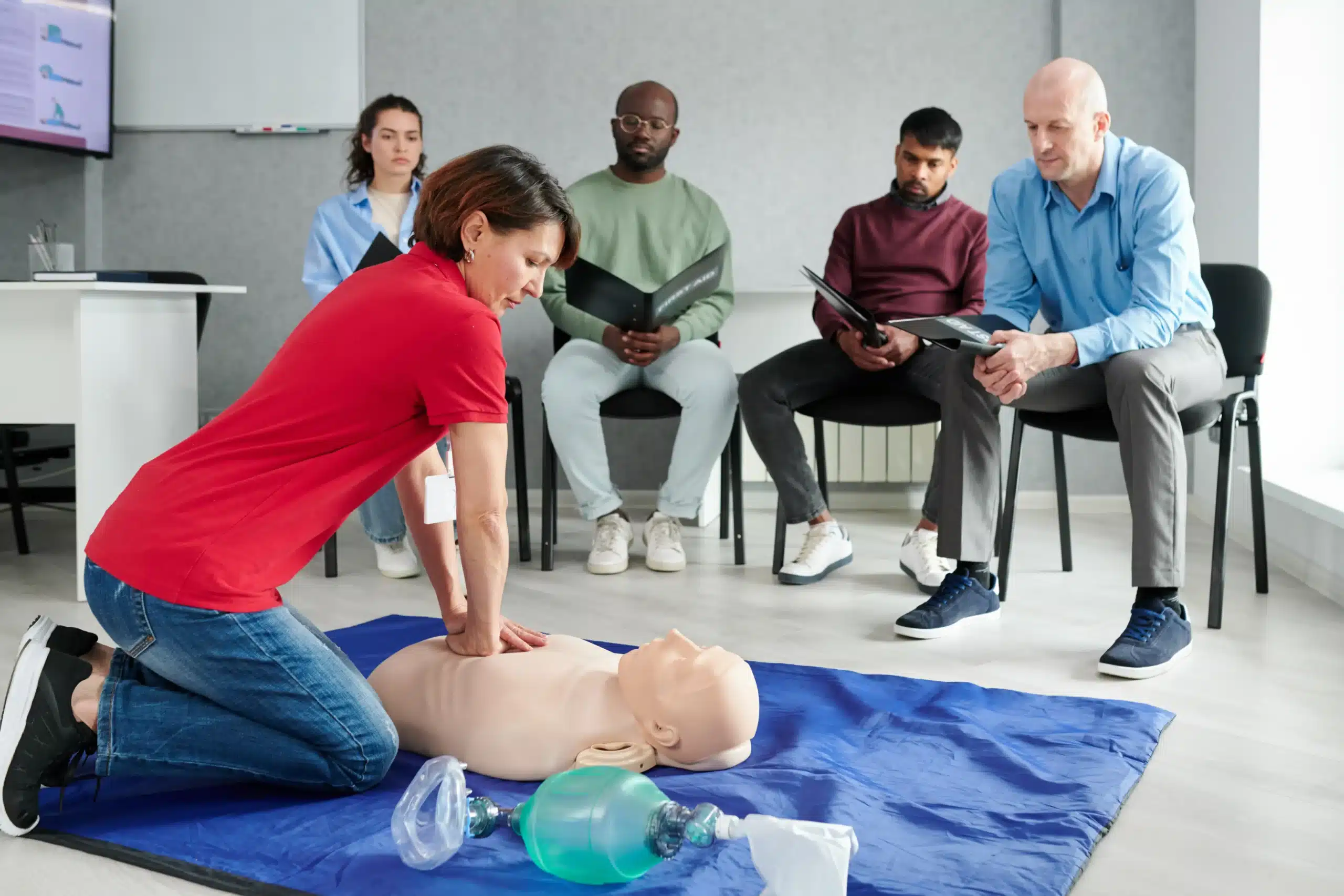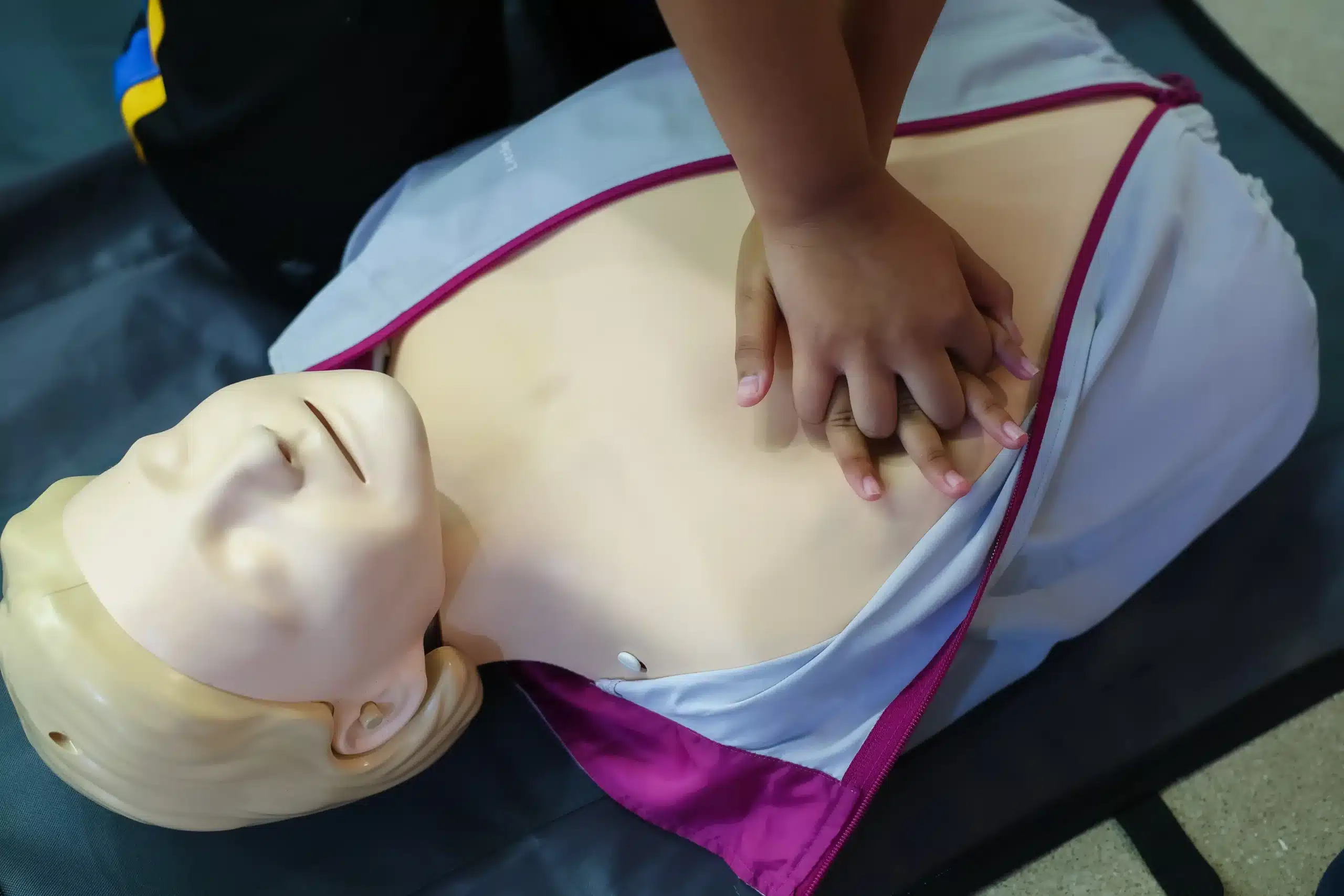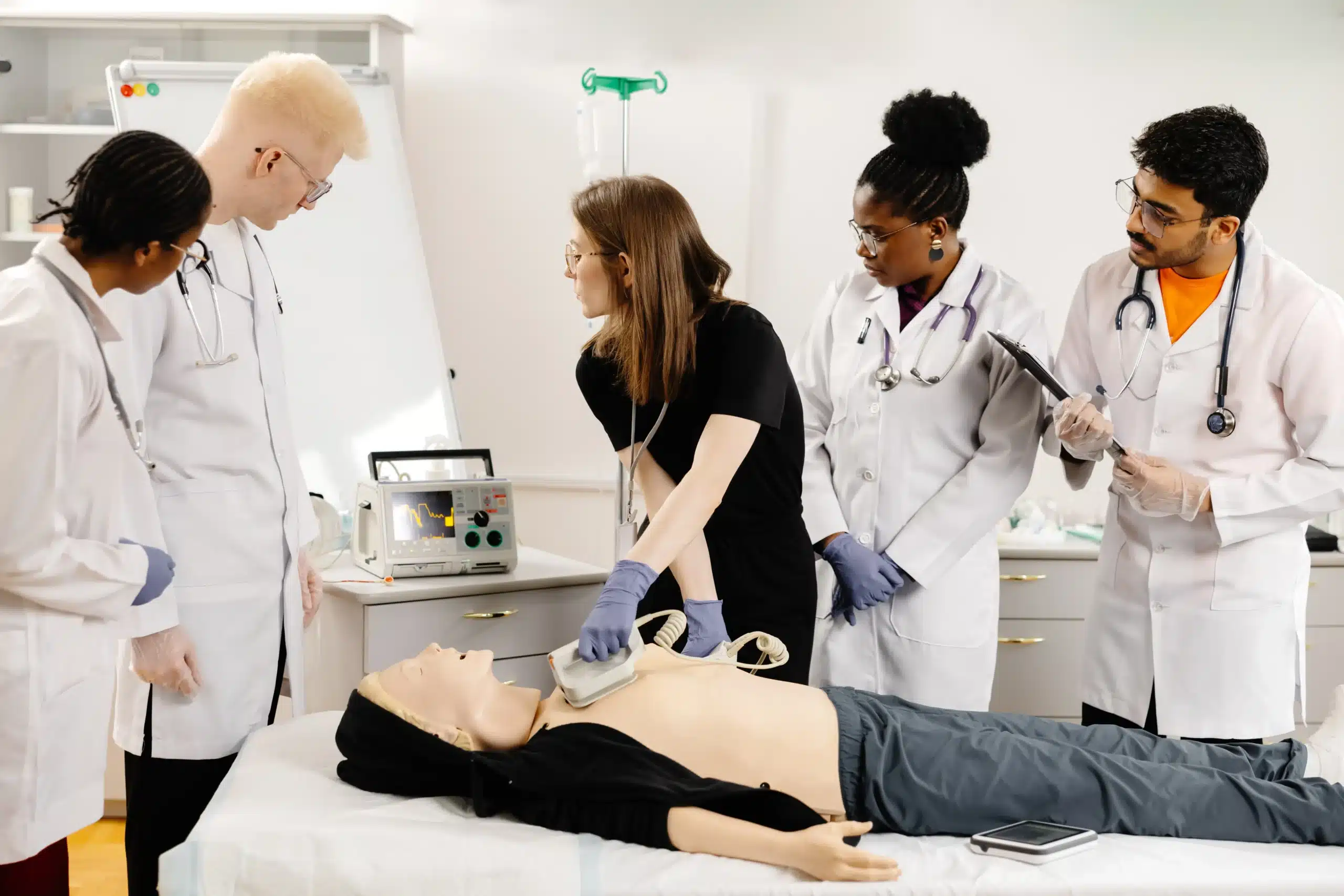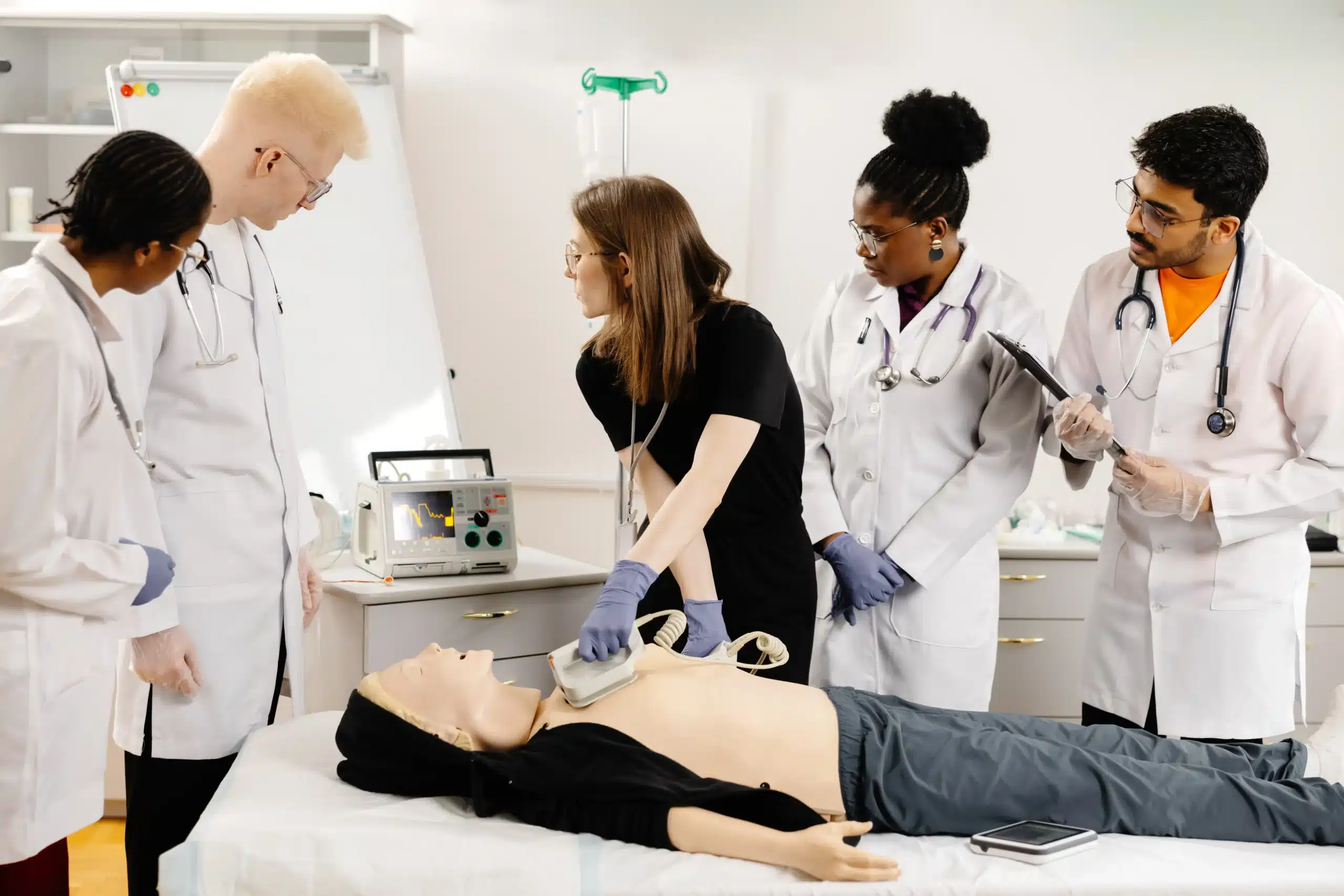Empowering yourself with life-saving skills starts with finding the right CPR classes in Fairfield. This comprehensive guide breaks down everything you need to know about CPR training in your area. We’ll explore the various types of CPR courses available, including BLS, ACLS, PALS, and First Aid, and discuss how to choose the right class based on your individual needs. We’ll also delve into the costs, schedules, and certification process, offering valuable insights into what to expect during a CPR class. Finally, we’ll address common CPR myths and emphasize the importance of staying current with the latest guidelines. Join us as we explore the resources and opportunities available to become a confident and prepared responder in Fairfield.
Key Takeaways
- Find the Right CPR Class for You: Fairfield offers a range of CPR classes, from basic life support for the general public to advanced cardiac life support for healthcare providers. Explore the different options to find the best fit for your needs and career goals.
- CPR Certification Is an Investment in Your Community: Learning CPR empowers you to respond effectively in emergencies, creating a safer environment for everyone. Take advantage of the numerous resources and flexible schedules available in Fairfield.
- Maintain Your Skills and Confidence: Regular practice and recertification ensure your CPR skills remain sharp and aligned with the latest guidelines. Stay prepared and make a real difference when it matters most.
What are CPR Classes in Fairfield?
CPR classes in Fairfield equip you with the skills to handle cardiac arrests and other medical emergencies. These courses teach cardiopulmonary resuscitation (CPR) and how to use an automated external defibrillator (AED). Learning CPR is crucial, as immediate action can significantly increase the chances of survival during a cardiac arrest. The American Red Cross emphasizes this, citing the hundreds of thousands of cardiac arrests that occur annually in the US.
Fairfield offers various CPR training options through organizations like the American Heart Association (AHA) and local fire departments. You’ll find training in Basic Life Support (BLS), Advanced Cardiovascular Life Support (ACLS), Pediatric Advanced Life Support (PALS), and First Aid. Many courses, like those offered by Fairfield CPR Classes, provide AHA certification, ensuring you receive standardized, high-quality instruction. Daily classes and online registration make it easy to fit training into your schedule. The City of Fairfield Fire Department frequently offers free CPR and AED classes to residents and community groups, reflecting their dedication to public health. CPR classes not only prepare individuals for emergencies but also build a safer, more prepared community. For additional local training options, you can explore resources like Bay Area CPR.
CPR Course Types
Choosing the right CPR class depends on your specific needs and goals. Whether you’re a healthcare professional, a concerned parent, or simply want to be prepared for emergencies, understanding the different types of CPR courses available will help you make an informed decision. Vacaville CPR Classes offers a variety of courses to meet diverse needs, serving Vacaville, Dixon, and Fairfield communities.
Basic Life Support (BLS)
BLS certification courses provide the foundational knowledge and skills necessary to respond to life-threatening emergencies. These courses cover essential techniques like high-quality CPR for adults, children, and infants, along with AED use and relief of choking. BLS certification is often a prerequisite for other advanced courses and is suitable for healthcare providers, and anyone interested in learning basic life-saving skills. Check out our CPR and First Aid Certification Courses to learn more.
Advanced Cardiovascular Life Support (ACLS)
ACLS courses are designed for healthcare professionals who manage cardiopulmonary arrest and other cardiovascular emergencies. Building upon the fundamentals of BLS, ACLS training incorporates advanced airway management, pharmacology, and team dynamics. These courses emphasize effective communication and decision-making in critical situations. For more information on ACLS courses, you can explore resources like CPR Classes in Fairfield.
Pediatric Advanced Life Support (PALS)
PALS courses focus on the specialized needs of infants and children facing respiratory or cardiovascular emergencies. Healthcare providers who regularly work with pediatric patients will find these courses invaluable. PALS certification covers essential assessment and treatment strategies specific to young patients. Learn more about PALS courses from resources like CPR Classes in Fairfield.
First Aid and CPR Combination Courses
Combining first aid and CPR training offers a well-rounded approach to emergency preparedness. These comprehensive courses equip participants with the skills to handle a wide range of situations, from minor injuries to life-threatening events. This combination is particularly beneficial for those seeking comprehensive safety training for the workplace or personal life. These classes often meet OSHA requirements. For those interested in combined training, you can find more information on First Aid, BLS & CPR Classes.
CPR Class Costs & Schedules
Finding a CPR class that fits your budget and schedule is easier than you think. Various options are available, so you can find a course that works for you.
Pricing & Group Discounts
CPR class costs vary depending on the course type and training provider. Many organizations offer group discounts, making it a cost-effective choice for businesses, community groups, or families who want to learn together. For example, Vacaville CPR Classes offers discounts for group bookings. Bringing the training to your workplace or organization is also a smart way to save on individual travel costs and time. Some providers, like Safety Training Seminars, will even come to your location.
Course Duration & Flexible Schedules
CPR class schedules are designed to accommodate busy lifestyles. Daily courses are often available, with options for weekday evenings and weekends. Course duration depends on the type of course. Basic CPR and First Aid certification typically take a few hours, while more advanced courses like BLS may require a longer time commitment. In-person training offers hands-on practice and direct interaction with instructors. With flexible scheduling, you can find a class that fits your availability.
CPR Certification: Process & Validity
Getting CPR certified is straightforward, and staying current is easy. Understanding the process and validity period will help you prepare for emergencies.
American Heart Association Certification
Earning your CPR certification through the American Heart Association (AHA) is valuable. The AHA is a respected organization known for its high standards in CPR training. Choosing an AHA-certified course ensures you receive comprehensive, evidence-based instruction, giving you the skills and confidence to respond effectively in emergencies. AHA certification is widely recognized and often preferred by employers.
Renewal Requirements
AHA CPR certifications are valid for two years. This timeframe reflects ongoing updates to best practices in CPR. Renewing your certification ensures your skills remain sharp and aligned with the latest guidelines. Contact your local provider, like Vacaville CPR Classes, for convenient renewal courses that fit your schedule. They offer various options to help you maintain your qualifications and provide the best possible care when it matters most.
What Happens in a CPR Class?
This section covers what you can expect during a typical CPR class, from hands-on training to written exams. Understanding the process can help ease any concerns and prepare you for a successful learning experience.
Hands-on Practice & Equipment
CPR classes are highly interactive. You’ll learn essential skills through hands-on practice with CPR training mannequins. This allows you to develop a feel for providing effective chest compressions, learning the correct depth and placement crucial for providing life-saving assistance. Using high-quality training equipment ensures you develop the proper technique. Many classes also provide students with a free keychain CPR training mask so you can be prepared for emergencies even on the go. This practical training builds confidence and prepares you to respond effectively in real-life situations.
Written Exams & Instructor Qualifications
Along with hands-on training, most CPR classes include a written exam to assess your understanding of the material. This reinforces key concepts and addresses common misconceptions about CPR. Many people have concerns about performing CPR incorrectly or causing harm, but these classes aim to dispel those fears. You’ll learn the latest guidelines, such as those from the American Heart Association, which often emphasize compression-only CPR. Certified instructors guide you through the process, ensuring you have the knowledge and skills to act confidently in an emergency.
Choose the Right CPR Class
Finding the right CPR class depends on your background and career goals. With several options available, understanding the key differences will help you make the best choice.
Healthcare Professionals vs. General Public
CPR training is valuable for everyone, but the requirements differ for healthcare providers and the general public. Doctors, nurses, and other healthcare professionals need BLS certification to perform their duties. These specialized courses cover advanced life-saving techniques required in medical emergencies. Fairfield BLS certification classes give healthcare providers and students the skills to respond effectively in critical situations.
For the general public, CPR and first-aid classes offer essential life-saving skills for everyday emergencies. These courses empower individuals to help family, friends, or even strangers until professional help arrives. Learning CPR can make a real difference, even without a medical background.
Specialized Industry Courses
Beyond general CPR and BLS for healthcare providers, some industries have specific training requirements. Many workplaces must comply with OSHA regulations. ASHI First Aid CPR AED certification meets these requirements, offering comprehensive training for a range of workplace emergencies.
Childcare providers in California also have specific licensing requirements. Pediatric first aid CPR AED certification in Fairfield ensures compliance with EMSA regulations, equipping childcare professionals with the skills to handle emergencies involving infants and children. Choosing the right course prepares you for the unique situations you might face in your profession.
Fairfield CPR Class Providers
Finding the right CPR class in Fairfield means considering several factors, including location, cost, and the type of certification offered. Here’s a rundown of some providers in and around Fairfield:
Vacaville CPR Classes
For those willing to travel a short distance, Vacaville CPR Classes offers a convenient option for Fairfield residents. They specialize in bringing CPR, BLS, First Aid, and ACLS certification courses directly to homes and businesses in Fairfield. This mobile training approach offers flexibility and personalized instruction, catering to both individuals and groups. Their courses are designed to meet the specific needs of various professions, from healthcare providers and teachers to childcare professionals. Check out their website for more information on group discounts and their low-price guarantee.
American Red Cross
The American Red Cross offers CPR/AED training and certification classes nationwide. With hundreds of thousands of cardiac arrests occurring each year, their comprehensive training equips individuals with life-saving skills. To find a class near you, visit their website and enter your zip code. They offer a variety of courses to fit different needs and schedules.
Fairfield Fire Department
The Fairfield Fire Department provides a valuable community service by offering free CPR and AED classes to residents, businesses, and local organizations. These courses, taught by fire department personnel using the American Safety and Health Institute (ASHI) curriculum, ensure participants receive high-quality, practical training. This is an excellent resource for those seeking affordable and accessible CPR instruction in Fairfield.
Other Local Training Centers
Several other training centers in and around Fairfield offer various CPR certifications. For example, you can find a range of courses, including American Heart Association BLS, ACLS, PALS, and CPR training, through providers like Safety Training Seminars. This variety caters to diverse needs, from basic life support to advanced certifications for healthcare professionals. Exploring these options can help you find the perfect fit for your specific requirements.
Benefits of Fairfield CPR Classes
Fairfield CPR classes offer distinct advantages, from specialized local knowledge to flexible scheduling options. These benefits make becoming CPR certified in Fairfield not only convenient but also a valuable contribution to the community.
Local Knowledge & Resources
Fairfield residents benefit from community-focused resources like the Fairfield Fire Department, which offers free CPR and AED classes. These initiatives ensure that essential life-saving skills are accessible to individuals, businesses, and organizations throughout the city. This local focus means the training often incorporates specific Fairfield scenarios and resources, making your skills even more relevant.
Community-Focused Training
CPR and first-aid training are crucial for community health and safety. Fairfield CPR classes empower individuals to respond effectively during emergencies, creating a network of trained responders within the city. This strengthens community resilience and promotes a culture of preparedness. Knowing that your neighbors and colleagues are also trained can provide peace of mind. Bay Area CPR offers insights into the importance of community-based CPR training.
Flexible Learning Options
Fairfield CPR classes recognize that busy schedules can make finding time for training challenging. Many providers offer a variety of learning formats, including in-person classes, online learning, and blended options. This flexibility allows you to choose the format that best suits your learning style and availability. Vacaville CPR Classes offers daily courses, maximizing your scheduling options. The Red Cross also provides information on different learning formats for CPR certification.
CPR Training Myths
It’s easy to get confused about CPR, especially with so much information (and misinformation) circulating. Let’s clear up some common misconceptions that might prevent you from learning this life-saving skill.
Who Can Perform CPR
One persistent myth is that only certified individuals can perform CPR. This isn’t true. Anyone can and should attempt CPR in an emergency. While a CPR course provides valuable knowledge and skills, not having certification shouldn’t stop you from acting when someone’s life is on the line. Even basic CPR can significantly improve a person’s chances of survival.
Importance of Certification
While anyone can perform CPR, certification offers important advantages. A structured CPR class like those offered at Vacaville CPR Classes provides in-depth instruction, builds confidence, and addresses common concerns like fear of injuring the victim. Certification also demonstrates a commitment to best practices and may be required for certain professions. However, if you’re not certified and faced with an emergency, don’t hesitate to act. Compression-only CPR can still be highly effective.
Mouth-to-Mouth vs. Compression-Only CPR
Another common misconception is that CPR always involves mouth-to-mouth resuscitation. Current guidelines prioritize chest compressions. While rescue breaths are important in certain situations, compression-only CPR is often sufficient and easier for bystanders to perform. This simplified approach encourages more people to take action without hesitation in emergencies. A qualified CPR instructor can teach you the appropriate techniques for different scenarios.
Prepare for Your CPR Class
Required Materials & Pre-course Study Tips
Attending a CPR class is a rewarding experience, and a little preparation can make it even better. While you won’t need to bring much, understanding the materials and having a general idea of what to expect can help you focus on learning these lifesaving skills. Many classes provide the essentials, like a keychain CPR training mask, so you can practice rescue breaths safely and hygienically. You’ll also work with current instructional materials, such as videos and course manuals, ensuring you learn the most up-to-date techniques. Some classes may use the American Red Cross First Aid/CPR/AED Participant’s Manual as a resource. Check with your chosen provider, like Vacaville CPR Classes, to see if they recommend reviewing any materials beforehand.
Maintain Your CPR Skills
Learning CPR is a significant first step, but keeping those skills fresh is just as important. CPR guidelines and best practices can evolve, so staying current is key. One of the best ways to maintain your skills is to periodically retake your CPR certification course. This refresher reinforces your existing knowledge and introduces you to any updated procedures. Hands-on practice is essential for confident and effective CPR. During your class, you’ll have the opportunity to practice on CPR training mannequins, allowing you to develop the muscle memory and precision needed for proper chest compressions. Regular practice and recertification will ensure you’re always ready to respond in an emergency. Dispelling common CPR myths is also important, so you can act quickly and confidently when needed.
Related Articles
- Online CPR Classes in Fairfield: A Certification Guide
- First-Aid Training in Fairfield: Your Complete Guide – Vacaville CPR Classes
- ACLS Renewal in Fairfield: Your Simple Guide – Vacaville CPR Classes
- BLS Training in Vacaville: Your Comprehensive Guide – Vacaville CPR Classes
- Online PALS Classes in Dixon: A Certification Guide
Frequently Asked Questions
What’s the difference between BLS and CPR?
CPR (Cardiopulmonary Resuscitation) is a specific life-saving technique used when someone’s heart stops beating. BLS (Basic Life Support) is a broader term that includes CPR but also encompasses other skills like using an AED and relieving choking. Think of CPR as one tool within the BLS toolkit.
How do I choose the right CPR class in Fairfield?
Consider your specific needs. If you’re a healthcare provider, you’ll likely need BLS or a more advanced certification like ACLS or PALS. For most others, a standard CPR/First Aid course is a great starting point. Also, think about location, schedule, and cost when making your decision. Check if your employer has specific requirements.
I’m nervous about performing CPR incorrectly. What if I hurt someone?
It’s natural to feel apprehensive, but CPR classes address these concerns. Instructors teach proper techniques and emphasize that doing something is always better than doing nothing. Plus, current guidelines often favor compression-only CPR, simplifying the process and reducing the risk of harm.
How long is a CPR certification valid, and how do I renew it?
Most CPR certifications, especially those from the American Heart Association, are valid for two years. Check with your certifying organization for specific renewal requirements. Many providers offer refresher courses to make recertification easy and convenient.
Why should I take a CPR class in Fairfield specifically? Wouldn’t a CPR class anywhere be the same?
While the core CPR skills are universal, taking a class in Fairfield offers advantages. Local instructors often tailor scenarios and resources to the area, making the training more relevant. Plus, you’ll learn about community-specific resources, like free CPR classes offered by the Fairfield Fire Department.
